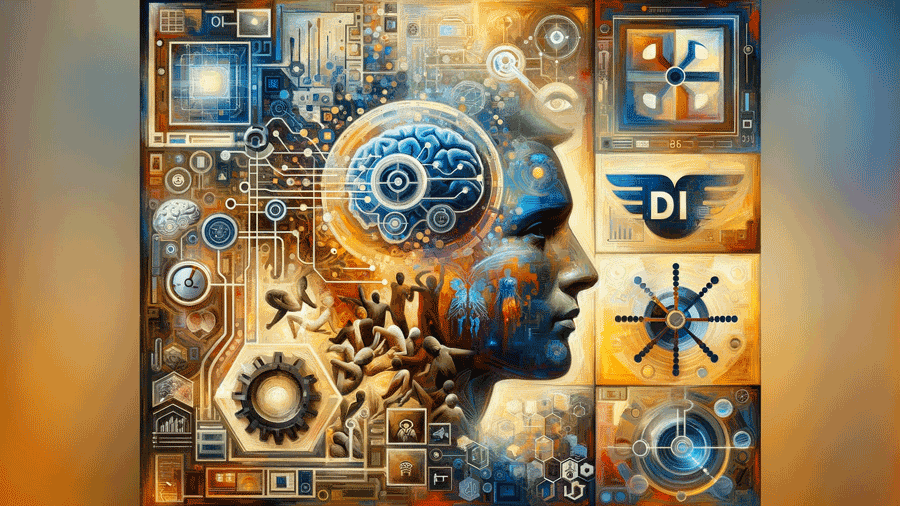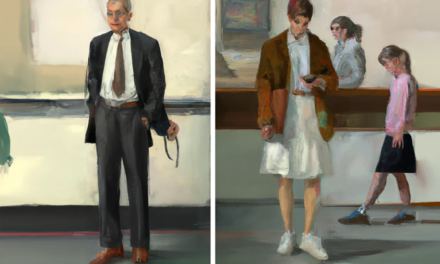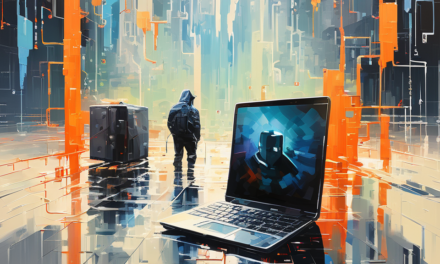When contemplating the future of work, there is an ever-present fear that artificial intelligence (AI) could render human labour obsolete. However, this perspective doesn’t fully encompass the intricate relationship between technology and employment.
Historical patterns, stretching from the industrial revolution to the digital age, indicate that groundbreaking technologies tend to reshape the workforce rather than eliminate it.
The ongoing discourse surrounding AI resembles past technological advancements – an initial wave of hype followed by tempered integration into society. In 2023, AI reached what many saw as the peak of this hype. Yet, akin to electricity, the internet, and robotics, AI is poised to redefine human work, not replace it.
The Importance of Human Oversight
While AI exhibits remarkable capabilities, it falls short of replicating the subtleties of human emotional intelligence (EQ), which encompasses empathy, intuition, and emotional understanding. These uniquely human qualities are indispensable in tasks requiring creativity and social acumen, areas where technology has limitations.
Recognising AI as a complementary force rather than a replacement for human labour is pivotal. AI excels at handling repetitive and time-consuming tasks, thereby bolstering productivity and fostering growth. Nevertheless, the belief that AI can operate independently without human oversight is misleading. Human validation remains essential, whether it involves drafting correspondence, coding, or contributing to medical diagnostics.
The true potential of AI lies in its ability to collaborate with human intelligence, addressing skill gaps and amplifying our capacity for innovation and relationship-building. Beyond generative tasks, AI’s proficiency in data analysis, pattern recognition, and intricate problem-solving can enhance staffing decisions and development strategies with greater insights.
AI Challenges
However, this partnership is not without its challenges. The inherent biases within AI systems pose a pressing concern. If left unchecked, these biases can perpetuate and exacerbate societal prejudices. Tackling this issue necessitates a concerted effort in training and education to make users aware of AI’s limitations and enable them to actively guide its learning process toward more equitable and precise outcomes.
AI’s potential extends beyond the workplace, revolutionizing recruitment by offering solutions that transcend traditional qualifications and tap into a more extensive talent pool. Its predictive capabilities can align educational pathways with future industry requirements, addressing national skills gaps. For the incoming workforce, particularly Generation Z, AI is more than just a tool; it is a collaborator. Their familiarity with digital technology positions them to seamlessly integrate AI into their work, viewing it as a means to ensure job stability and engage in more creative and fulfilling tasks.
As organisations navigate this evolving landscape, the emphasis should be on incorporating AI into existing operations and workforce dynamics. This involves building trust, promoting AI literacy at all organisational levels, and fostering an environment that sees AI as a catalyst for innovation and growth.
Adapting to Change
The technology sector, in particular, experiences a profound impact from AI, ushering in a shift in roles and required skills. Professionals in this field are at the forefront, not only in developing and refining AI technologies but also in adapting to the changes it brings.
As AI takes over routine coding and testing tasks, the demand for higher-order skills such as system design, problem-solving, and creative innovation is heightened. Technology workers find themselves in roles where they oversee and enhance AI algorithms rather than merely executing predefined tasks. This transition underscores the importance of continuous learning and adaptation, encouraging a shift towards more strategic and creative positions within the tech industry.
The narrative that portrays AI as a harbinger of joblessness simplifies a much more intricate and dynamic reality. AI, when effectively understood and harnessed, possesses the potential to enrich human work, bridge skills gaps, and catalyse a new era of productivity and creativity. Instead of a threat, AI can be a potent ally in the ongoing evolution of the workplace. It won’t be long before we consider AI a valuable colleague, rather than just a productivity boosting tool.

Timo Lehne is CEO of SThree PLC, a global STEM-specialist staffing firm. Timo joined SThree in 2006 working initially as a consultant at its Progressive Recruitment business in Germany, rising to regional managing director in 2017 before being appointed SThree CEO in 2022. As CEO Timo leads a global team focused on bringing skilled people together to build the future, driving innovation in vital industries.
Timo is a German native and splits his time between Munich and London. Before joining SThree he studied International Economics in the Netherlands and attended business school in Germany.






